nations
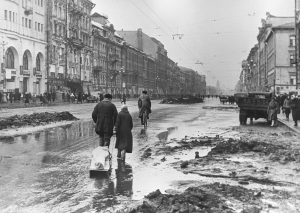 When an evil empire, such as Hitler’s regime in Nazi Germany, decides to rule the world, they begin to take over neighboring nations…by any means possible. If the nation is too weak to fight, it is easy, but if the nation can fight it becomes much harder to succeed. Nevertheless, they always seem to find a way, if they are determined enough. And Hitler was nothing, if not determined. The Nazis invaded the Soviet Union in late September, and surrounded Leningrad soon after. The months that followed, found the people of the city trying to establish supply lines from the Soviet interior and attempting to evacuate its citizens. It was a tough process and they often found themselves using a hazardous “ice and water road” across Lake Ladoga. A successful land corridor was finally created in January 1943, and the Red Army finally managed to drive off the Germans the following year. Nevertheless, all that took time, and in the end, the siege lasted nearly 900 days and resulted in the deaths of more than 1 million Soviet civilians.
When an evil empire, such as Hitler’s regime in Nazi Germany, decides to rule the world, they begin to take over neighboring nations…by any means possible. If the nation is too weak to fight, it is easy, but if the nation can fight it becomes much harder to succeed. Nevertheless, they always seem to find a way, if they are determined enough. And Hitler was nothing, if not determined. The Nazis invaded the Soviet Union in late September, and surrounded Leningrad soon after. The months that followed, found the people of the city trying to establish supply lines from the Soviet interior and attempting to evacuate its citizens. It was a tough process and they often found themselves using a hazardous “ice and water road” across Lake Ladoga. A successful land corridor was finally created in January 1943, and the Red Army finally managed to drive off the Germans the following year. Nevertheless, all that took time, and in the end, the siege lasted nearly 900 days and resulted in the deaths of more than 1 million Soviet civilians.
The German and Finnish forces besieged Lenin’s namesake city after their spectacular initial advance during Operation Barbarossa in the summer of 1941. Nevertheless, it was not going to be an easy task to bring the Soviet people into submission. A German Army Group struggled against stubborn Soviet resistance to isolate and seize the city before the onset of winter. The fighting was heaviest during August. German forces reached the city’s suburbs and the shores of Lake Ladoga, severing Soviet ground communications with the city. In 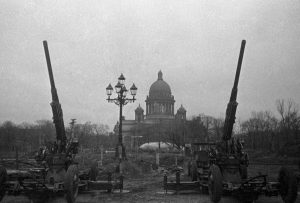 November 1941, Soviet forces repelled a renewed German offensive and clung to tenuous resupply routes across the frozen waters of Lake Ladoga. After that, German and Soviet strategic attention shifted to other more critical sectors of the Eastern Front, and Leningrad…its defending forces and its large civilian population…endured an 880 day siege of unparalleled severity and hardship. I simply can’t imagine the cruelty of a regime that would let a million people starve to death to obtain power. Despite desperate Soviet use of an “ice and water road” across Lake Ladoga to resupply its three million encircled soldiers and civilians and to evacuate one million civilians, over one million civilians perished during that bitter siege. Another 300,000 Soviet soldiers died defending the city or attempting to end the siege. In January 1943, Soviet forces opened a narrow land corridor into the city through which vital rations and supplies again flowed. But it was not until January 1944, that the Red Army successes in other front sectors enable the Soviets to end the siege. By this time, the besieging German forces were so weak that renewed Soviet attacks drove them away from the city and from Soviet soil. Determination simply wasn’t enough to win that victory for Hitler.
November 1941, Soviet forces repelled a renewed German offensive and clung to tenuous resupply routes across the frozen waters of Lake Ladoga. After that, German and Soviet strategic attention shifted to other more critical sectors of the Eastern Front, and Leningrad…its defending forces and its large civilian population…endured an 880 day siege of unparalleled severity and hardship. I simply can’t imagine the cruelty of a regime that would let a million people starve to death to obtain power. Despite desperate Soviet use of an “ice and water road” across Lake Ladoga to resupply its three million encircled soldiers and civilians and to evacuate one million civilians, over one million civilians perished during that bitter siege. Another 300,000 Soviet soldiers died defending the city or attempting to end the siege. In January 1943, Soviet forces opened a narrow land corridor into the city through which vital rations and supplies again flowed. But it was not until January 1944, that the Red Army successes in other front sectors enable the Soviets to end the siege. By this time, the besieging German forces were so weak that renewed Soviet attacks drove them away from the city and from Soviet soil. Determination simply wasn’t enough to win that victory for Hitler.
After November 1941, possession of Leningrad held only symbolic significance. In holding the “ice and water road” the Soviets were able to bring in enough supplies to stave of the ongoing starvation, so the siege has a 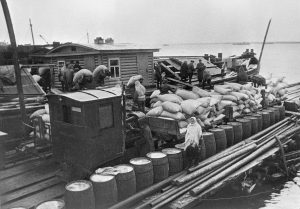 little less effect. The Germans maintained their siege with a single army, and defending Soviet forces numbered less than 15 percent of their total strength on the German-Soviet front. The Leningrad sector was clearly of secondary importance, and the Soviets raised the siege only after the fate of German arms had been decided in more critical front sectors. Despite its diminished strategic significance, the suffering and sacrifices of Leningrad’s dwindling population and defending forces inspired the Soviet war effort as a whole. No nation can lose that many people and not feel its impact. The siege ended on January 27, 1944, but I don’t think the people felt that it was such a big victory, considering the loss of life.
little less effect. The Germans maintained their siege with a single army, and defending Soviet forces numbered less than 15 percent of their total strength on the German-Soviet front. The Leningrad sector was clearly of secondary importance, and the Soviets raised the siege only after the fate of German arms had been decided in more critical front sectors. Despite its diminished strategic significance, the suffering and sacrifices of Leningrad’s dwindling population and defending forces inspired the Soviet war effort as a whole. No nation can lose that many people and not feel its impact. The siege ended on January 27, 1944, but I don’t think the people felt that it was such a big victory, considering the loss of life.
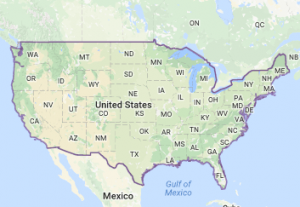 For many years the United States and Russia, at one time the Soviet Union, have had an unusual relationship. Depending on what Russia is trying to do, they might be our enemy, or they might be our ally. I understand that different nations have different goals, different values, and different motives, but it still seems odd to me that in one war, we could be allies and in another war, we become enemies. It could seem a little bit like two childhood friends, who are best friends one minute and worst enemies the next minute. The only exception would have to be the fact that trust doesn’t really fit in with the rest of the characteristics of the relationship between the United States and Russia. I suppose that becoming allies then, becomes a matter of finding an enemy who is doing things you can’t accept, and another enemy who agrees with you on your dislike of the actions of the first enemy…if that makes sense. I think that my prior statement makes as much sense as the United States being an ally of Russia, but that is what they have been…sometimes. I think the most difficult part of that kind of relationship would have to be the point when the relationship turns from ally to enemy again, because it really is inevitable.
For many years the United States and Russia, at one time the Soviet Union, have had an unusual relationship. Depending on what Russia is trying to do, they might be our enemy, or they might be our ally. I understand that different nations have different goals, different values, and different motives, but it still seems odd to me that in one war, we could be allies and in another war, we become enemies. It could seem a little bit like two childhood friends, who are best friends one minute and worst enemies the next minute. The only exception would have to be the fact that trust doesn’t really fit in with the rest of the characteristics of the relationship between the United States and Russia. I suppose that becoming allies then, becomes a matter of finding an enemy who is doing things you can’t accept, and another enemy who agrees with you on your dislike of the actions of the first enemy…if that makes sense. I think that my prior statement makes as much sense as the United States being an ally of Russia, but that is what they have been…sometimes. I think the most difficult part of that kind of relationship would have to be the point when the relationship turns from ally to enemy again, because it really is inevitable.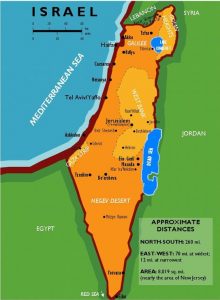
It is historical fact, that over the years the Untied States and Russia have found themselves on opposite sides of a war…even threatening to blow each other up with a nuclear bomb, but so far, both have also hesitated to take things to that level, because the start of that kind of war would likely bring inhalation, since each country has the ability to know that such an attack has started. It’s a good thing that technology has given us that ability, because if we had the nuclear bombs we now have and no way the know that an attack had commenced, one nation could easily wipe out another. Russia has often tested the United States when they have moved to attack weaker nations for the things they wanted, such as oil, food, and power. Their actions left the United States with no other options but to fight against the nation that was sometimes an ally. It has happened in the past, and it will happen again in the future, because Russia remains an enemy of Israel, and that at the very least, is a situation in which the United States would want to act. Israel has always been our ally…not a sometimes ally, and if we are able, we would protect them. At least I pray that we would.
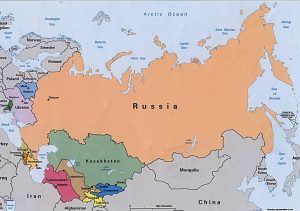 The biggest factor to affect the relationships between countries is their leaders. Most of the history of the United States has found our leaders acknowledging and even embracing our longtime, and very important friendship with Israel. Nevertheless, some leaders, like our current president, have made it clear that Israel is in a precarious position in the world. I am thankful that our president elect has told us that he will be a friend to Israel and other nations that have been oppressed by power nations in the past. It remains to be seen, exactly where Russia will be in this scenario. It is my hope that they will be an ally, but I know that they are still an enemy of our friends, and that can only make us sometimes allies.
The biggest factor to affect the relationships between countries is their leaders. Most of the history of the United States has found our leaders acknowledging and even embracing our longtime, and very important friendship with Israel. Nevertheless, some leaders, like our current president, have made it clear that Israel is in a precarious position in the world. I am thankful that our president elect has told us that he will be a friend to Israel and other nations that have been oppressed by power nations in the past. It remains to be seen, exactly where Russia will be in this scenario. It is my hope that they will be an ally, but I know that they are still an enemy of our friends, and that can only make us sometimes allies.

